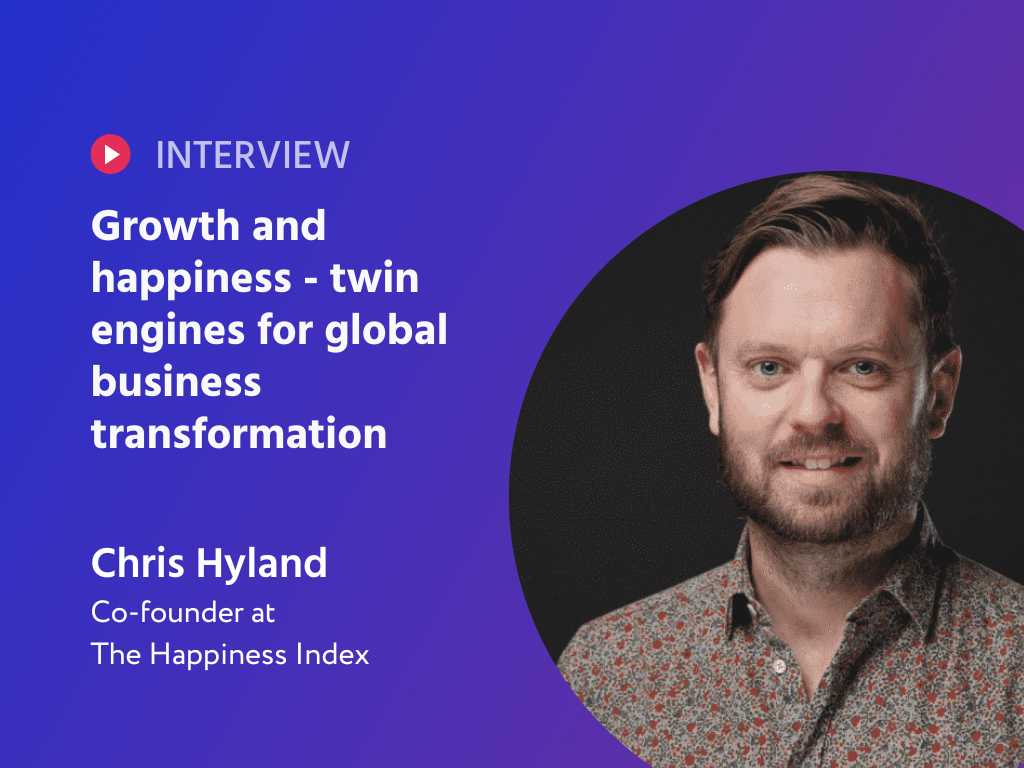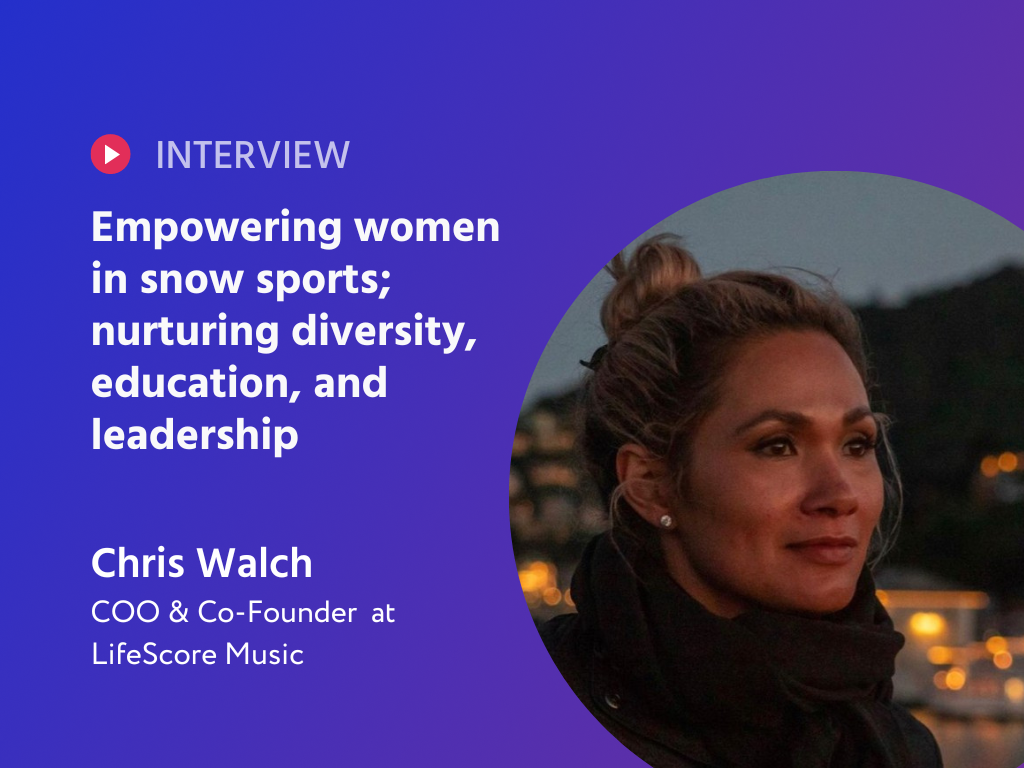Karim Ben-Jaafar, President at Quadient is next on Bright Founders Talk by Temy. Discover the secrets behind successful business acquisitions as we delve into the acquisition of Beadworks Solutions by Quadient. Learn how Karim believes individuals and businesses can thrive by fostering a culture of lifelong learning and the importance of rapidly integrating new features into your company's core offerings and explore the benefits of how striving for a 1% improvement rate each month can propel your business to new heights.
Quadient made a significant acquisition two years ago, purchasing a company that was already making waves in the tech industry - Beadworks Solutions. The move was significant not only for the Canadian tech scene but also for the entire Vancouver startup community. Catherine Dahl, the company's CEO with a focus on product development, led the acquisition, while her partner, the company's president, managed internal operations. The president was in charge of sales, marketing, and customer success, among other things, as CRO. He was enthusiastic about the position, despite admitting that his strengths were in internal operations rather than other areas. The company has been integrated into Quadient’s parent organization as a result of the acquisition, paving the way for a bright future for this innovative startup and its complementary pair of leaders.
Beyond the Classroom: Embracing a Lifetime of Learning for Personal Growth
When asked what Karim believes as the most crucial component to his and any company's success, he emphasized the importance of a capacity for learning and development - lifelong education.
“Personal and institutional commitment to lifelong learning is critical, while advocating for both individuals and businesses to adopt a learning culture to remain competitive.”
Karim's insights are especially pertinent in light of the information overload that we are all experiencing; in particular, Karim's emphasis on how much more we have learned in the last year compared to the previous six years.
According to Karim, the year 2022 marks a watershed moment in humankind's proclivity for education. Our efforts have enabled us to learn faster and more effectively than ever before.
“So the most important thing I learned again, in 2022, was that I didn't know how to scale these learning systems when your partner is a 6000 person company, with another joining client, or we double the size of the Beadworks team are quite an AP team in that period of time, relatively short period of time to add all that headcount.”
“Just look at ChatGPT. Nobody believed in natural language predictive text AIS until Chat GPT began writing high school students' essays, and your child comes up to you and says "Hey, I just finished a fantastic Shakespeare essay," and you ask, "What's going on here? You're my child, and you're not that bright."
Navigating Uncharted Waters: Beyond the Classroom: The Difficulties of Operating
Karim claims that if an organization is not designed to embrace the unknown, they will struggle to make it work, citing the importance of a R&D department. For strategically managing a business, he highlights his skills in marketing, sales, customer success, leadership, and boardroom ethics.
'The real test is how quickly we can incorporate these new features into our core offering.'
“When I first started, I thought that hiring and overpaying for rock star employees was the way to go. People have a disproportionate impact and can be difficult to find, but it remains true that they have a significant impact. As we've seen with Elon Musk and his approach to team building, it's often the 10% who do 90% of the work.”
I do not believe that great employees are random occurrences. Everyone has the potential to be an A-player in the right environment
“Of course, work ethic is important, but if you hire people with core values that align with your organization, and they don't perform well, it's not as simple as quickly replacing them and overspending on new hires. Instead… train them! I believe that we are all A-players at our core.”
Invest in Your Team: Why Employee Skill Development Should Be a Top Priority
The key to nurturing employees is to create an environment in which they can use their strengths while working on their weaknesses
According to Karim, if someone is struggling in their present position, it is your obligation as the leader, their manager to assess whether they are in the correct position and whether their abilities are being utilized in the existing role before making alterations.
“Empathetic conversations with employees in order to understand their needs and values, as well as the values of the company.”
Regrets and Life Lessons: My Experiment with Bad Advice
Karim's account of the worst advice he's ever heard is a thought-provoking perspective on business ethics and the importance of human relationships - ‘Don't invest in people, instead focus solely on extracting value from them.’
This advice supports a transactional mentality that stresses instant gain over long-term progress, rather than understanding the worth of people and making genuine connections.
It raises crucial questions about the importance of empathy and compassion in business, and it pushes us to think about how our actions affect the people around us. Karim challenges us to reevaluate how we approach business and relationships, and to stress the human element in all of our pursuits.
“This approach emphasized keeping the team hyper-focused on the task at hand and not allowing them to develop. But, the team that gets a company from point A to point B is not the same team that can take it from point B to point C.”
Karim claims that this approach is not only inefficient, but also harmful to the team's growth and development.
“It is the company's responsibility to ensure that the team that worked hard and made sacrifices to get the company to point B can stay with them and develop to get the company to point C.”
Ignoring the team's development is a distraction, and investing in them takes effort and time
However, he tells how this investment is critical for strengthening the team's resilience and preparing them to handle the increased workload that comes with the company's expansion.
“The worst advice a company can receive is to not invest in the development of its team and instead focus solely on extracting value from them. Instead, I encourage businesses to invest in their teams and strengthen their resilience in order to prepare them for the challenges that come with growth and scaling up.”
"Investing in [the team's] development is critical for strengthening the team's resilience."
Beyond the Pitch: Recognizing the Characteristics of a Truly Effective Salesperson
Karim told the story of Michael Burgess, an expert who gave a talk at Google presenting a theory on how to create something engaging.
“He analyzed the characteristics shared by 200 salespeople who met their quotas regularly and those who did not. Intelligence, curiosity, and coachability, he discovered, were most strongly correlated with success, while qualities like confidence or the ability to close were actually negatively correlated. Because of the sequential relationship between these characteristics, it is clear that a person with high scores on all three will reliably meet or exceed expectations.”
Innovation is not just a department, but a mindset that should be embedded throughout an organization
“One way to encourage this is by gamifying the idea generation process, such as by having an "Idea of the Year" award for the best idea that gets executed. However, for research and development (R&D), it's important to have a culture of innovation ingrained at every level.
The 1% Rule: Achieving Success Through Constant Improvement
“A departmental approach we've taken is the 1% improvement challenge, where every quarter, each department is tasked with finding a 1% improvement in their processes.”
“This exercise not only has a disproportionate impact on the business but also forces departments to question what they know and don't know, and whether they have an R&D mindset.”
Karim explains that every department has to present and defend 1% efficiency gains every quarter. By adjusting their social media posts for each platform, the sales team could, for instance, try to boost content engagement by 1%.
Teams are encouraged to take risks and explore new ideas, with the 1% challenge as a simple benchmark to identify areas of weakness. As a result of this activity, teams learn more about the fundamentals of the business, which is information they will always find useful.
The Pitfalls of a Sense of Entitlement: You're not entitled to anybody's money
Karim tells how fundraising is a huge part of the entrepreneurial journey because you are not entitled to anybody’s money. For example, if you were self-funding, that's a different track. It's rare that people self-fund, usually they try to create some product-market fit and then try to do a seed round, followed by a series A and so on.
“In my experience, having had good luck in my life so far, and having been a founder, founding employee, advisor and investor in companies, there's a common thread that successful entrepreneurs understand: you shouldn’t feel entitled to the investors' money when creating your product.”
You shouldn’t feel entitled to the investors' money when creating your product
Karim tells how investors appreciate, whether institutional or private, the fact that you know how to run your business without outside capital. That is to say, you have to show that if they decide not to fund your product, you will survive.
“I noticed an arrogance in myself and others in my first ventures, where we put everything in line, from Series A to Series B, assuming that we'll just keep raising money. But building a great business should not require external funding, and if it does, then it might not be such a great business after all.”
Building a great business should not require external funding, and if it does, then it might not be such a great business after all
“A better approach is to have confidence in your business and see funding as a way to accelerate growth rather than a necessity. So let go of the desire to show off your funding at cocktail parties and focus on building a solid business."
Karim says that the mindset you have to have is - my company is doing well, I believe in it, and you never know what it could be.
“Without outside financing, it will be a lifestyle business until it is not. But I don't want it to be a side hustle; I believe we could benefit from your expertise and a small portion of your capital. And here's what I'm capable of doing on my own. And let's see if we can make something great faster than something that will be great with or without you at some point in the future. So I respect your money; every dollar you give me is treasured; I will not waste it. But I'll only use it to expand on something that already works.”
He tells how a little bit of that humility goes a long way. First and foremost, you have to build a great business, and then only look at capital when you deserve it.
You need to be able to say - I don't require your money to succeed. And neither am I entitled to it




